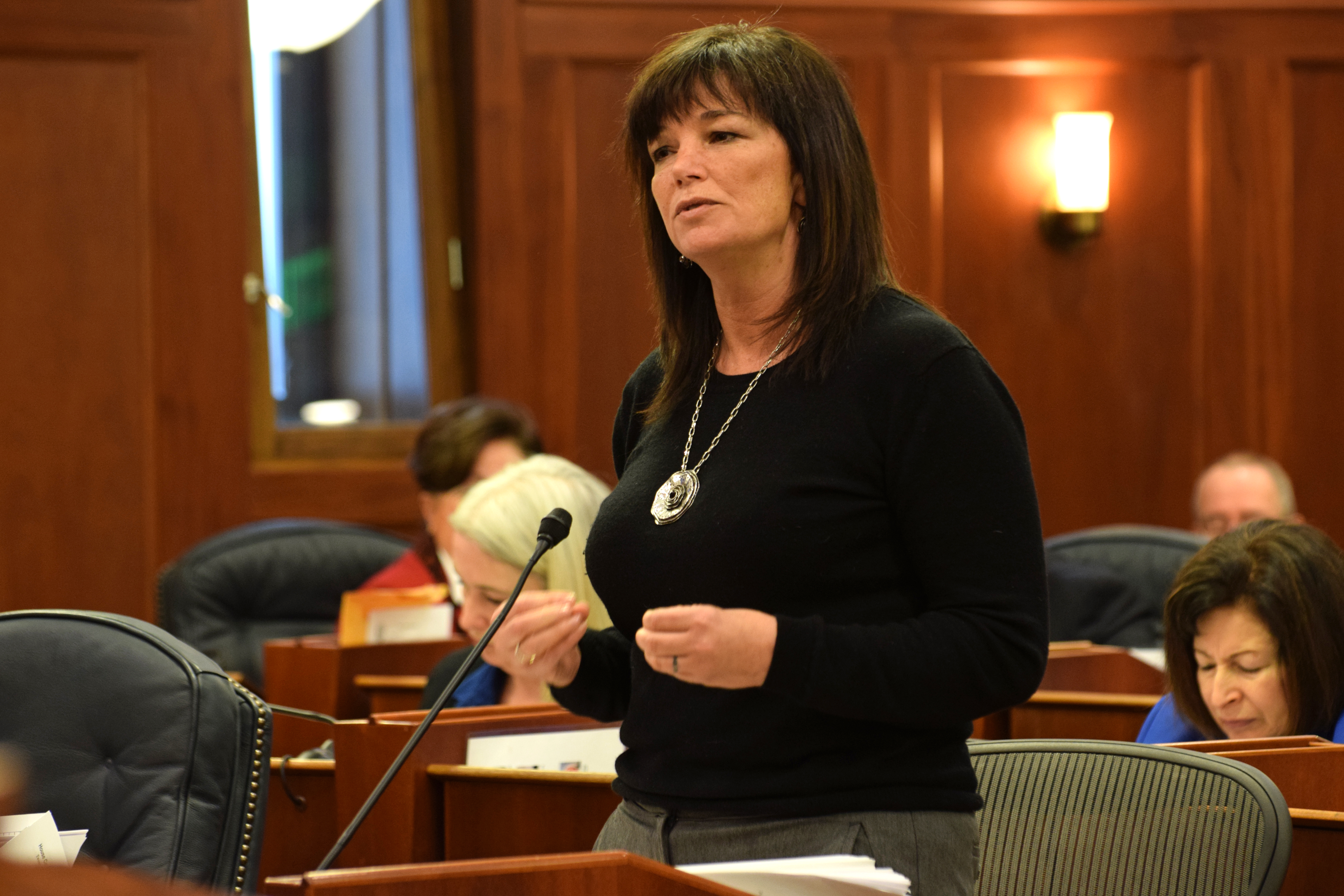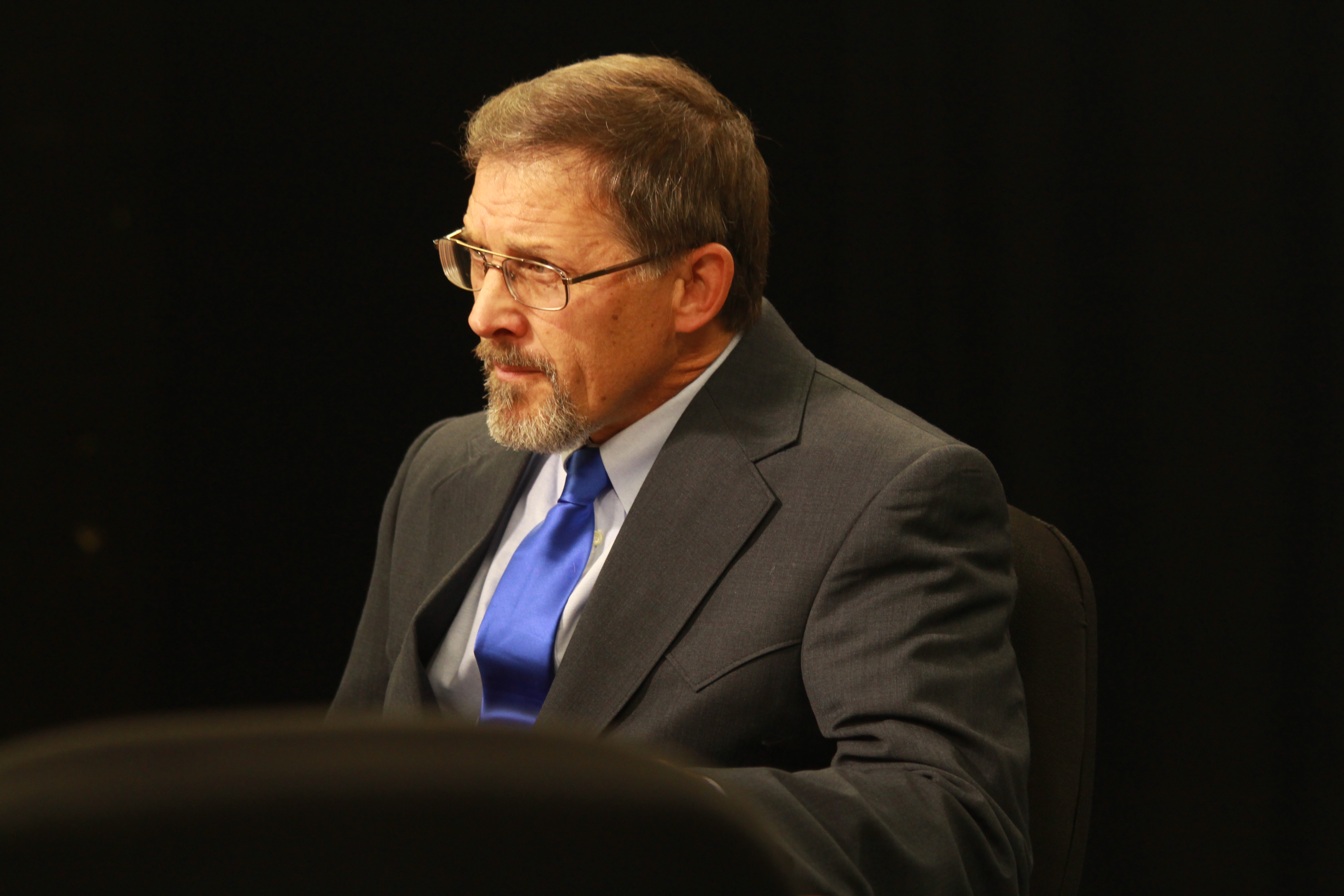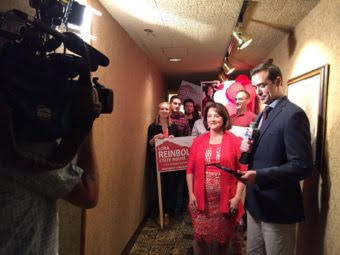Alaskans ejected as many as five incumbents from the House in the primary yesterday. And they also rejected two House members who tried to move up to the Senate. But not many people showed up to vote. It was the lowest turnout for a primary in state history.
Three Republican incumbents and two Democrats who caucused with the Republicans trailed their opponents in a primary that drew only 15 percent of voters, not counting outstanding absentee ballots.

House Majority Leader Charisse Millett attributes both incumbents’ headwind and the lowest-ever turnout to the same factor – low oil prices that have hurt Alaska’s economy and the state budget.
“When you are in a deficit, I think people are, you know, it’s depressing. People to get and vote for, you know, candidates that are upbeat, and it’s hard to be upbeat in this environment.”
A lack of highly competitive statewide races also contributed to the low turnout.
Millett, who was unopposed, said it was a tough year to run for re-election.
“People are looking for someone to blame for the falling oil prices and, you know, a sitting legislator is an easy target,” Millett said.
It’s not yet clear how the primary will affect the balance of power in the Legislature. But if the current totals hold up and Republicans continue to hold the majority, they will have to do so with two fewer Democrats joining them. That’s because Bob Herron of Bethel was defeated by Zach Fansler, and Benjamin Nageak of Barrow trails Dean Westlake of Kotzebue.
Casey Reynolds, who edits the political blog The Midnight Sun, says this year’s special sessions kept incumbents in Juneau and away from their districts. With the apparent losses of Herron and Nageak, he sees the chances of a bipartisan coalition increasing.
“A bipartisan organization is more likely today than it was before the election,” Reynolds said. “And the general election is going to be very important. It’s really going to be the deciding factor on this one.”
One Republican who showed a willingness to cross party lines lost. George Rauscher defeated Republican Representative Jim Colver in a district that sprawls from Valdez through parts of Palmer to Big Delta. Business groups targeted Colver after he voted to reduce oil and gas tax credits.

Rauscher had said Colver was likely to join a bipartisan coalition with Democrats. But similar comments aimed at other candidates didn’t succeed. In Palmer, Richard Best lost after making a similar charge against DeLena Johnson. And Homer incumbent Paul Seaton won, despite, he said, being subjected to disturbing and unfounded charges.
“It was the most negative campaign I’ve ever seen on the lower peninsula,” Seaton said.
State Republican Party spokeswoman Suzanne Downing says the party has room for improvement, in turning out voters in the November general election.
“Every single district could improve their voter turnout, and I think as a party we’re going to work a lot harder on that for the general,” Downing said.
The only legislator who isn’t a member of either caucus – Eagle River Representative Lora Reinbold – was re-elected. The Republican caucus expelled her in 2015 after she refused to support a caucus-backed budget. She says she wants to rejoin the caucus and work with them to set their principles for the next term.

“And alls I’m asking is that we stick with those principles,” Reinbold said. “And that’s why it’s really important the team that we send down there. And we’re just hoping that we’re lock in step and stay under the umbrella of our principles.”
While most competitive races were in the House, the state’s most expensive race was in an Anchorage Senate district, where Natasha Von Imhof defeated Representative Craig Johnson and Jeff Landfield.
The state Division of Elections still has to count absentee and questioned votes, and won’t certify the primary results for more than two weeks.
Anne Hillman of Alaska Public Media and Shahla Farzan of KBBI contributed to this report.
Andrew Kitchenman is the state government and politics reporter for Alaska Public Media and KTOO in Juneau. Reach him at akitchenman@alaskapublic.org.




